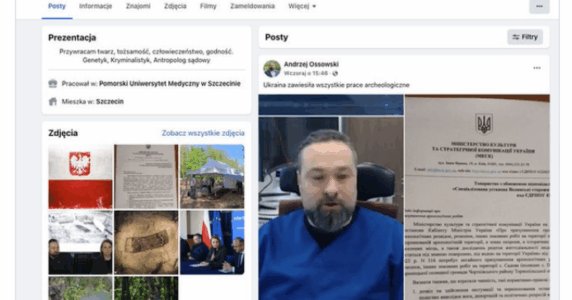Navigation and useful materials
In 2022, the Centre analyzed the media landscape of Brazil, Argentina, and Mexico based on the monitoring conducted by the Ukrainian social startup LetsData from September 12 to 25 to find out what Russian narratives are common in the media space of Latin America.
The Centre for Strategic Communication and Information Security continues to monitor the global media landscape to identify Russian narratives and the level of influence of Kremlin propaganda on the foreign information space.
This year, the Centre, in collaboration with LetsData, continued to analyze the media landscape of Argentina and Brazil for 2 months (January-February 2023) to track the main trends and changes in the spread of Russian narratives in Latin America.
Methodology: using machine learning, publications were collected with at least one mention of Ukraine and/or the war in Ukraine in the online media of the countries studied. For each country, the most visited online media sites (also considering those that share pro-Russian rhetoric), TV channels, and newspapers that have an online version were selected. Data collection and analysis were conducted in the original language. Preparation and processing of data was conducted in the Python programming language. Text processing was based on content analysis.
The study presents only those narratives and messages that reproduce Russian propaganda, which does not exclude the presence of productive and neutral narratives in the media of the analyzed countries.
Common Russian messages in Argentina and Brazil
In the Centre’s 2022 study, among the main Russian narratives in the media landscape of Brazil, Mexico, and Argentina, were those related to the nuclear threat, Russophobia, calls for peace negotiations, and support for China in the Russian war against Ukraine.
During the monitoring of the media landscape in 2023, a number of Russian narratives were also noted in the online media of Argentina and Brazil.
For example, until now, messages about the blackmail of the use of nuclear weapons by Russia were spread: “Medvedev warns NATO of a nuclear war if Russia is defeated in Ukraine,” “NATO’s participation in Russia’s war against Ukraine may increase the risk of a nuclear war.” Calls for peace talks have not lost their relevance on the agenda of online media in Argentina and Brazil.
The messages spread also justified Russia’s war against Ukraine and assured foreign audiences that “the Russian military in Ukraine protects the interests of the Russian nation, the future, and its children.”
In addition, the detected messages actively discredited the Ukrainian army, such as: “Russia guarantees compliance with the ceasefire, despite the Ukrainian bombing” and “Ukraine threatens the civilian population.”
The noted Russian narratives covered the involvement of NATO, the United States in the war of Russia against Ukraine. In particular, in January-February, the media space of Argentina and Brazil reported that “Russia is not at war with Ukraine, but with NATO,” “Washington and Brussels used the Minsk agreements to prepare a conflict against Russia,” and “they are pressing Ukraine to launch a counteroffensive that will calm NATO.”
A number of reports continued to promote statements of Ukraine “being under control” of the United States, such as: “Ukraine is the cannon fodder for the US elites, necessary for the realization of their geopolitical ambitions,” “Ukraine has become a private NATO military company, ready to perform all tasks.”
Threats of “escalation of the conflict” in the event of continued military assistance to Ukraine from the West remained a separate leading topic: “The provision of British tanks to Ukraine will only aggravate the war,” “Ukraine will receive more heavy weapons from NATO, and Russia warns of an escalation of the conflict,” and “the Kremlin says that the Ukrainians will suffer if the West sends fighters to Ukraine.”
The impact of sanctions on Russia and the West was also on the agenda. In particular, reports noted in the online media of Argentina and Brazil assured of “negative consequences for the West” from EU sanctions: “the West’s attitude towards Putin caused a major energy crisis in Europe, since the main source of energy for many countries was Russian gas.”
During January-February, there were also messages on the agenda that corresponded to other common Russian narratives. For example, about “Ukraine’s allies being tired of the war.”
During the monitoring, online media published messages about Crimea, but so far, they have reproduced the following Russian messages, such as: “The Russian authorities reject the idea of returning Crimea to Ukraine.”
Situational Messages Noted in Online Media of Brazil and Argentina
In January-February 2023, during the monitoring, separate messages were also noted in the context of certain events during the military operations of Russia on the territory of Ukraine.
For example, when a missile hit a residential building in Dnipro on January 14 — the online media of Argentina and Brazil spread the message that “Russia denies a deliberate attack on a residential building in Dnipro and blames Ukraine’s air defence systems for the ‘tragedy’.”
In addition, Russia’s “accusation” of Ukraine in the alleged “use of chemical weapons near Artemivsk and Vuhledar” was spread, but no evidence of this fact was provided. Transliteration of toponyms in Russian indicates that the regional news repeats Russian sources that deliberately disseminate false information about the troops of Ukraine. Russia tends to falsely accuse its opponents of arranging “provocations” that either did not happen at all, or were subsequently carried out by themselves or their allies.
Regional Messages Reproducing Narratives of Russian Propaganda
In addition to universal messages and narratives that reproduce the discourse of Russian propaganda, the monitoring also noted those that directly cover the context of the studied countries.
According to the analysis of the media landscape, Brazil has the position of a “country of peace.” For example, Brazilian President Luiz Inácio Lula da Silva explains the refusal to provide weapons to Ukraine by saying that “Brazil is not interested in transferring ammunition so that it can be used in the war between Ukraine and Russia and does not want to participate in this war, even indirectly.”
In addition, the Brazilian president always makes other similar statements, which are replicated by local media, and in this way, there is support for the ideas of some narratives of Russian propaganda. For example, “Lula: This war is a mistake, but Ukraine must seek peace with Russia,” “Brazil is waging a war against poverty, not against Russia.”
Expressing this position, Brazil seeks to maintain a certain independence from the United States and European states, but in this situation, to distance itself from Ukraine’s allies means to side with Russia. This trend is quite dangerous, as Brazil is a model for other countries in the region to follow.
Centre for Strategic Communication and Information Security
Expert commentary
The narratives presented in the study are undoubtedly present in the media and society of Argentina and Brazil. However, I should note that of the whole region, it is Argentina that is still showing the greatest interest in the events in Ukraine, which cannot be said about Brazil. The largest Argentine TV channels and radio stations (radio in Argentina is extremely popular) have adequately and carefully covered the Russian invasion of Ukraine so far. Nevertheless, the mentioned Kremlin narratives appear from time to time in the reports and in the comments of the audience. There are several reasons for this.
First of all, in Argentina and Brazil, many journalists and invited experts have a frankly bad understanding of the situation, not to mention detailed knowledge of the cause of this war, events until 2022, Russia’s motives, etc. Because of this, false narratives about “loyalty of Russian-speaking regions of Ukraine to Russia,” “fraternal ties between Ukraine and Russia,” “historical lands,” etc. appear in the media. Similar ignorance is the result of Ukraine’s lack of communication and the result of countries’ lack of interest in each other for many years.
Moreover, please remember that Argentina and Brazil have a rather peculiar relationship with the West. The populist government and Argentine society are still reflecting on the lost Falklands War, which many people see as a war with NATO and the West, which is true at certain points. Brazil considers itself a regional leader, an alternative force, and this provokes a clash with the United States. No wonder that the active involvement of NATO countries in the war in Ukraine and Kyiv’s rapprochement with the West is perceived critically in both countries. And as a result, such Kremlin narratives as “Ukraine being controlled by the United States,” “Western provocations against Russia,” “Moscow’s war with NATO, not with Ukraine” are easily perceived there.
Ukraine should not focus on relations with Western partners or emphasize our close cooperation and dependence when communicating with Argentine and Brazilian colleagues. On the contrary, we need to look for common interests of Ukraine, Argentina, and Brazil as separate entities of international relations, considering the interests of the parties.
Nuclear threat narratives are among the most popular in the media. This topic is used by both pro-Russian and adequate media. The main reasons remain “hype” and a sincere misunderstanding of the nuclear factor in this war. Neither Argentinians nor Brazilians are afraid of a nuclear war in Europe, but there is a constant narrative that Ukraine “needs to agree to avoid escalation.” Most of the Argentine and Brazilian media broadcast the nuclear threat as something real in the case of Russia’s defeat and “Putin being cornered.” Kyiv should promote the narrative that the nuclear threat is Russian blackmail and an unlikely scenario due to the gradual loss of legitimacy of the Russian authorities and the disadvantage of a nuclear war for Russia itself.
Heavy battles in Bakhmut for a long time remain a newsbreak. Indeed, we record narratives that “the war has come to a standstill,” “Ukraine cannot win because of lack of resources,” “Russia will push the situation in its favour at all costs.” Sometimes it seems that the audiences of Argentina and Brazil still have not accepted the failure of the Russian military machine, and the elites would like to prove the invincibility of their political ally in Moscow. However, this phenomenon is temporary. The Argentine media, which are mostly private companies, willingly cover Ukrainian advances and successes, despite the official “neutral” position of the government. In Brazil, unfortunately, attention to Ukraine flares up only in connection with high-profile events.
Oleksandr Slyvchuk, Coordinator of the Spain and Latin America Cooperation Program, Transatlantic Dialogue Center
If you have found a spelling error, please, notify us by selecting that text and pressing Ctrl+Enter.


